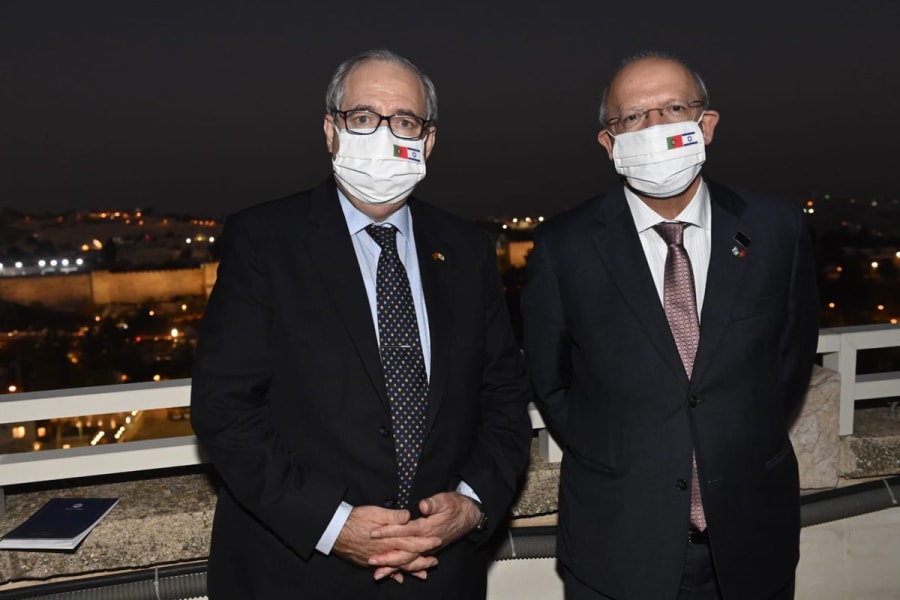Portugal: We will move embassy when Jerusalem is a shared capital
But does this pragmatic approach represent a shift in EU policy toward Israel?

Portugal’s Foreign Minister Santos Silva, who arrived in Israel on Sunday night for a two-day visit, told Jerusalem Post that Portugal would move its embassy from Tel Aviv to Jerusalem only when the city becomes the capital of two states.
Portugal’s Israel policy contrast sharply with U.S. President Donald Trump's decision to recognize Jerusalem as Israel’s capital and relocate the U.S. embassy to the city.
However, the Portuguese foreign minister’s statement also indicates that pragmatism is slowly beginning to influence the longstanding European policy of refusing to recognize Israel’s claims to any part of Jerusalem. Portugal’s shift matters because the country is preparing to take over the presidency of the Council of the European Union (EU) in January 2021 from Germany. It is an important half-year position, where the presiding state can influence the other member states.
On the face of it, Portugal’s implicit recognition of Israeli claims to Jerusalem seem consistent with the European Union’s policy of Jerusalem as a capital for two states, Israel and a future Palestinian Arab state. Furthermore, the EU has officially insisted that Jerusalem’s future status must only be decided within the framework of a comprehensive Israeli-Palestinian peace agreement. In accordance with this long held policy, the European Union blasted the Trump administration’s decision to move the U.S. embassy to Jerusalem in May 2018.
However, the EU has not practiced what it has preached. While all EU states’ Israel embassies are located in Tel Aviv, many European member states maintain consulates in Jerusalem. In practice, the consulates have served as independent and unofficial embassies for diplomatic relations between the European Union and the Palestinian Authority. In other words, the EU has violated its own official Jerusalem policy for years by siding with the Palestinian Authority against Israel. Officially, most European Union countries still do not even recognize West Jerusalem as the de facto capital of Israel with the Knesset, the prime minister’s office, the president’s residence and most Israeli ministries located there. By contrast, Russia recognized Western Jerusalem as Israel’s capital in 2017.
During his visit to the Jewish state, Portugal’s foreign minister stressed the need for warm relations between the European Union and Israel. Silva praised Israel’s decision to suspend its annexation plans of Jewish communities beyond the green line, a move that eventually led to the recent normalization deals between Israel, UAE, Bahrain, Sudan and Morocco. Israel’s suspended annexation plans could also dramatically improve European-Israeli ties according to Silva.
"It was important that the normalization process meant suspension of the annexation plans. It allowed us to see future conversation and cooperation with Israel in a much more positive way," Silva said.
Like the European Union, Portugal opposes Israel’s policy of construction in Jewish communities in Judea and Samaria. Portugal and the European Union envision a two-state solution with East Jerusalem as the capital of a future Palestinian Arab state and West Jerusalem as Israel’s capital.
While this policy sounds simple in theory, it ignores complex realities on the ground in Jerusalem. Since the reunification of Jerusalem under Israeli rule in 1967, much of the city’s Jewish population lives in new thriving neighborhoods beyond the former green line. In many cases, the green line cuts through streets. These Jewish neighborhoods are not going to suddenly disappear, nor will Israel give up its claims to the Western Wall and other sacred Jewish sites in Jerusalem’s old city.

The All Israel News Staff is a team of journalists in Israel.














